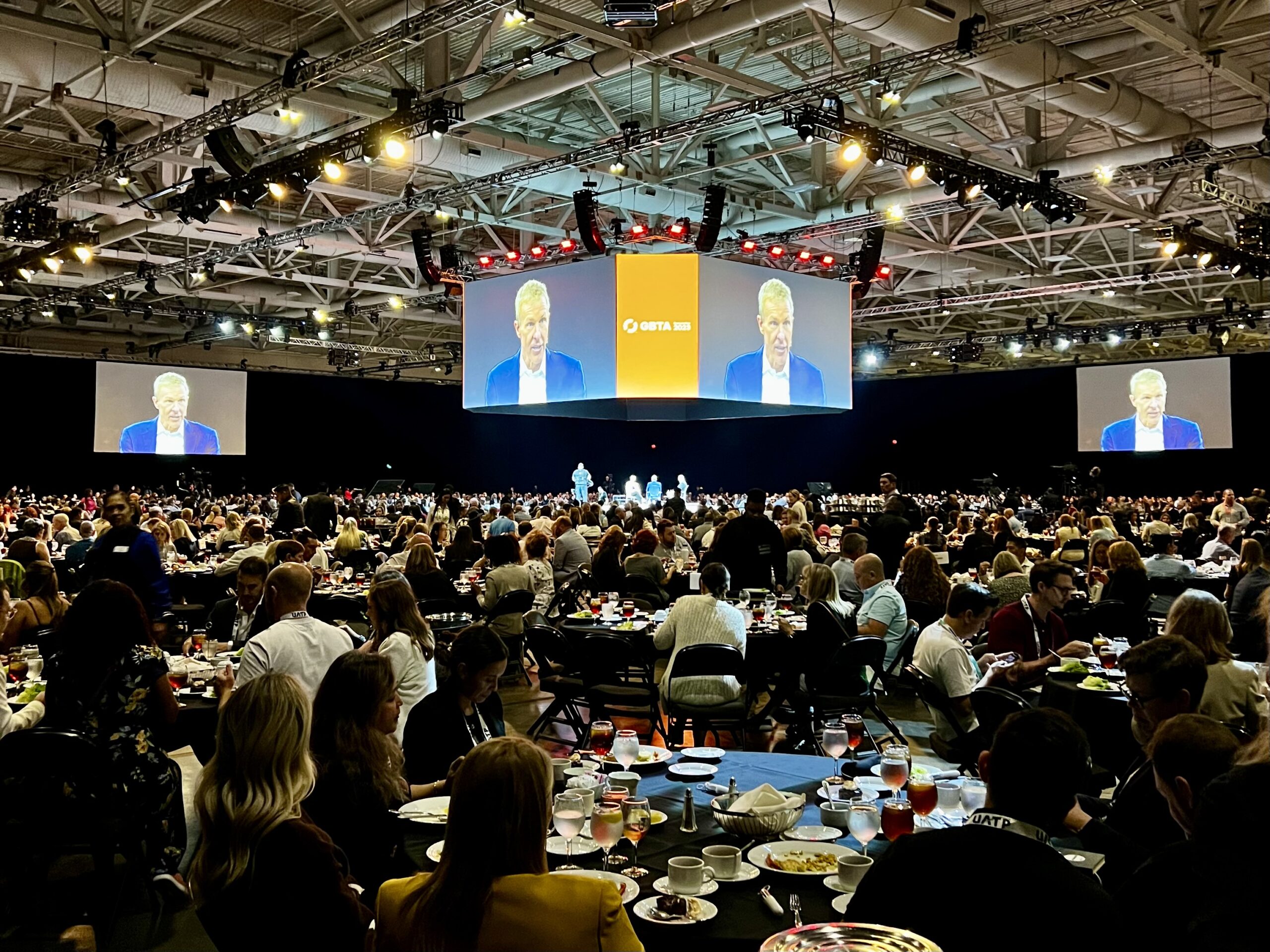How Will the Metaverse Change the Future of the Travel?
April 20, 2022

Technology is making it possible for travelers to have their travel experience before they travel
Metaverse travel is the next big thing to hit the travel industry, even if we aren’t there yet. Like space tourism, if you build the idea, the fans will follow. However, unlike taking travelers to some distant spaceship for an overnight bunking amid the stars, the metaverse is already here.
To that end, citizenM, a chic brand in luxury hospitality is acquiring a spot in “The Sandbox,” a popular decentralized gaming virtual world where users will eventually be able to explore a virtual hotel and interact with other users for such things as NFTs, that can be purchased in the digital space.
Marriott, too, is moving toward the new and yet unformed space that metaverse travel could inhabit. The hotel company entered the metaverse travel space last December with three elements of virtual art seen last year in Art Basel Miami Beach 2021, a leading annual contemporary art show.
The alternative universe is seen by Marriott as a new form of digital marketing and to a new audience. But those watching the travel industry evolve believe the metaverse could be much more in travel, possibly transforming the concept as we know it.
A study on metaverse travel that Emergen Research released this month posits that this concept has the potential to change the way travelers engage in pre-, post- and in-trip purchases, and become an essential part of the travel ecosystem.
Rapid technological adoption by travel and tourism companies to create substitutes for real-time travel, increasing investment to create 3D virtual tours, and rising use of metaverse platforms to enhance hospitality services are some key factors expected to boost market revenue growth over the forecast period.
In addition, increasing utilization of metaverse by travel and tourism companies to enhance their destination reputation, create immersive marketing experiences, and offer essential information to customers about room booking, room size and features, is another key factor expected to boost revenue growth of the market going ahead.
The widespread adoption of metaverse travel explorations, which require sophisticated goggles and intricately mapped products integrating AI and 3D real time integration, is still years away due to lack of affordability in the equipment and the time and expense involved in creating these products for evolving platforms.
Metaverse City with location pins / Photo: Shutterstock, naratrip
But it is no longer a pipedream to consider traveling to a beloved destination, entering a hotel as an avatar, interacting with other avatars, perhaps having a virtual dinner at an exclusive metaverse restaurant with friends presenting as avatars and using crypto funds to pay for that dinner and then heading off for a walk around the city or to a museum, all in a virtual world you can see and almost touch.
In such a vision, the destination tours segment is expected to account for a significantly large revenue share in the global market as awareness grows about potential of the metaverse to alter the dynamics of consumer experience in choosing destinations, attractions and accommodations, according to Emergen.
Virtual reality and augmented reality and metaverse platforms will enable users to experience destinations without physically traveling to the location they desire, and allow them to glimpse the experience that hotels and resorts can bring. Thus, test driving different trips and excursions is expected not to supplant bookings but encourage them, the report says.
There are drawbacks besides timing in the building and adoption of this form of entertainment. Not only are these projects slow and complicated – a lot goes into the 3-D mapping of places, spaces and destinations – but the use of the required goggles that can access these new lands reportedly cause dizziness, nausea, fatigue and may even lead to physical injury.
Questions remain, as well, about the privacy elements users might be sacrificing.
Key players in this evolving field so far are: The Boeing Company, Mytaverse, Marriott International, First Airlines, LynKey, Ariva, Color Star Technology Co. Ltd., Powerbridge Technologies Co., Ltd., Beyondvision Cultural Development Co., Ltd., Meta Platforms. Inc., Google LLC and Microsoft Corporation.
Former Disney CEO Robert Iger, too, is going all in with a metaverse-based enterprise through a company called Genies, a 3D avatar start-up that allows users to create their own custom digital avatars or personal metaverse personalities for their social media profiles and for travel in this space.
Airlines are looking into the channel of metaverse travel as a selling feature for premium seating, allowing visitors to get a glimpse of what first or business class flying feels like with the hope that once tried they may never want to return to the economy cabin.
Hotels are expected to be able to showcase rooms and suites, and shower visitors with a dazzling resort experience that will tip their choices in booking options.
Meanwhile, metaverse channels are moving into becoming decentralized autonomous organizations powered by blockchain technology and cryptocurrencies. That could mean being able to pay for chosen experiences and travel preferences in cryptos like Bitcoin or Ethereum, even while in the alternative landscape.
The NFTs, or personal nonfungible tokens we see now making so much buzz in artsy creations and trading across the Internet, become an ideal digital asset for travel companies to use in representing such products as airline tickets and hotel bookings.
As NFTs are actually crypto assets buyers can store in their crypto wallet, they then have whatever they need for traveling in the real world, such as money, airline tickets, and hotel reservations stored in a single place.
Travel advisors may become metaverse concierges and meet their clients in this universe to manage their travel experience avatar to avatar, creating new ways to fashion the trip and add upsells for clients as they move through their vacations.
Currently, as metaverse travel technology edges through the starting stages of physical development, there are few places or ways to explore the metaverse in motion. A start-up called Ariva may be one place to begin. The travel company offers tours and travel products for prices and purchase in cryptocurrencies on several exchanges.
In its next move, the company is developing a concept called Ariva Wonderland, and although few details are available, they do offer this teaser:
Make of it what you will. As the world wends its way down the next rabbit hole, it is best to know what to expect and what characters you may meet there.
ariva.digital, emergenresearch.com




